Like empty nesters attempting to downsize, a slew of seminaries across the U.S. have proposed plans this year to sell part or all of their property, opting for more nimble education models as the religious landscape continues to shift.
On May 16, Gordon-Conwell Theological Seminary, a revered institution in the evangelical Christian world, announced plans to part ways with its 102-acre main campus in Hamilton, Massachusetts. Weeks earlier, McCormick Theological Seminary and the Lutheran School of Theology jointly announced their plans to sell their properties in Chicago’s Hyde Park to the University of Chicago across the street.
In April, Lincoln Christian University in Lincoln, Illinois, also said it was exploring a proposal to sell its chapel, athletic facilities and dormitories to a local church, and Claremont School of Theology, east of Los Angeles, has been working to sell its property for roughly the last six years.
None of these institutions is ceasing to exist, each has made clear. “The seminary is not a building, and the work we do is not confined to these walls,” said David Crawford, president of McCormick Theological Seminary, about the seminary’s decision to sell.
These seminaries join at least eight others who have downsized in the last 12 years, including Andover Newton Theological School, a historical seminary that sold its property outside Boston to affiliate with Yale Divinity School in 2017, and Fuller Theological Seminary in Pasadena, California, which closed three of its eight satellite campuses in 2018.
Your tax-deductible gift helps our journalists report the truth and hold Christian leaders and organizations accountable. Give a gift of $30 or more to The Roys Report this month, and you will receive a copy of “Hurt and Healed by the Church” by Ryan George. To donate, click here.
“The ones that are facing the greatest pressures are freestanding institutions that don’t have large endowments and don’t have a surrounding university or institution,” said G. Jeffrey MacDonald, author of the 2020 book “Part Time Is Plenty.” “They’re the ones that are most vulnerable, because they still have campuses that are costly to maintain, and costs are only going up. And they have faculty, staff and administration to pay, so they need a critical mass of students.”
Many theological schools have responded by expanding their programs beyond aspiring clergy to appeal to working professionals, offering ecumenical and interfaith education and embracing online learning. Seminary leaders hope such innovations will extend the longevity of their schools.
In some cases it appears to be working. The Association of Theological Schools reported that in 2020, more member schools grew than shrank for the first time since 2006, with 54% showing enrollment increases. The uptick is likely due to remote learning options — in June 2020, the association removed residency requirements for all but Ph.D. students.
Despite the challenges, the seminaries that are selling frame their moves as a pivot rather than a downgrade. And not all are doing so for financial reasons.
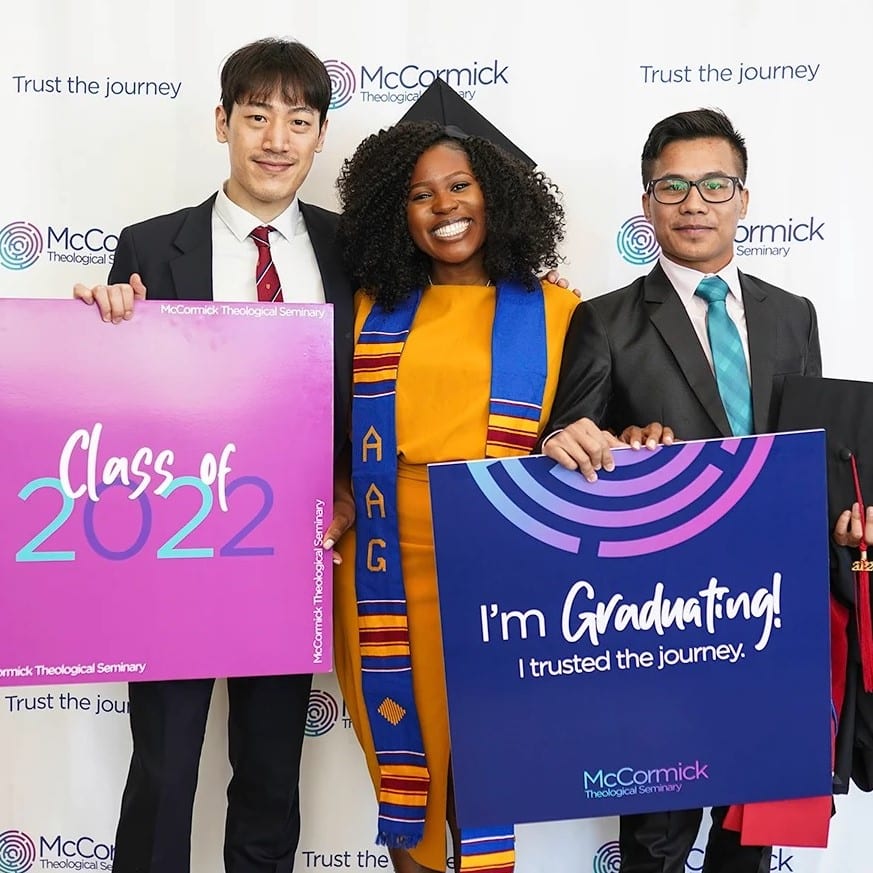
McCormick Theological Seminary said that enrollment has been relatively stable for five to seven years (ATS data shows their full-time equivalent enrollment has hovered at around 90 students) and that they boast a healthy endowment. President Crawford said that the school has nonetheless contemplated selling since 2009 as the leadership has taken stock of its mission.
“Twelve years ago, coming out of the Great Recession, all of us in theological education and in higher education generally had to stop and re-think — what is it we do? Where do we want to put our resources? How do we engage mission in ways that put us into the communities we want to be part of?” said Crawford.
Crawford says McCormick is considering using the funds from the sale to lease from Chicago churches or organizations to financially invest in the community. Since 2017, 66 of McCormick’s graduates aren’t even free to come to campus, as they have gone through the school’s theological certificate program at Cook County Jail.
For Gordon-Conwell, finances have been a key factor in the decision to sell. According to ATS, full-time-equivalent enrollment fell from 1,021 students in 2011 to 633 in 2021. What growth it has seen, said President Scott Sunquist, comes via online classes. Sunquist said the Hamilton campus simply no longer serves the school’s life.
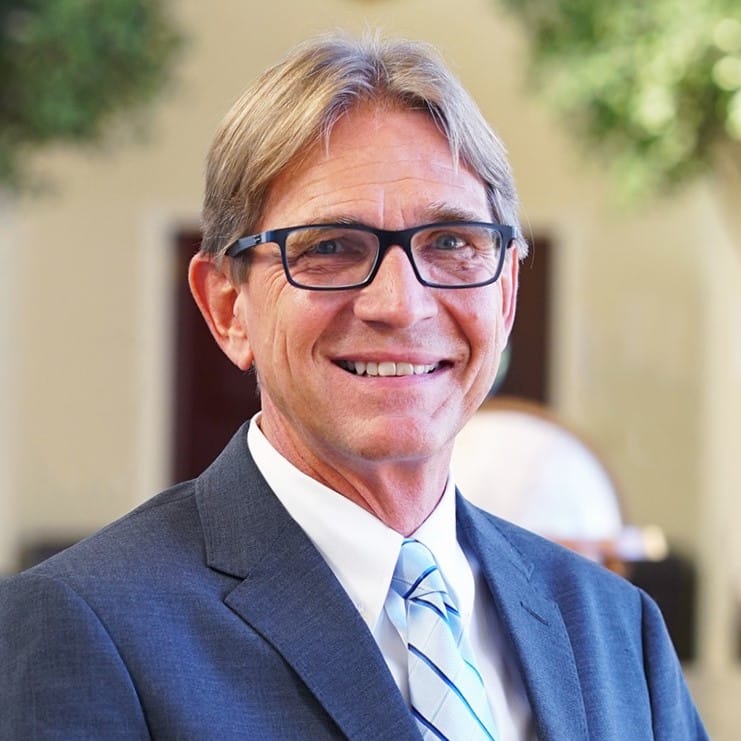
“The property has become a problem, rather than a promise,” he said, pointing to the aging buildings on campus.
Sunquist said Gordon-Conwell could sell the entire property — which Christianity Today reported had an assessed tax value at about $54 million — or keep some apartments to rent. In either case, the sale, which Sunquist estimated would take place in the next two to three years, will considerably boost the endowment and generate more income for student scholarships.
Gordon-Conwell hopes to lease a property in Boston where it already has a campus dedicated to urban ministry. Sunquist added that the school plans to partner with local Korean, Chinese, Black and Creole churches to host listening sessions and offer trainings and certificates to church members.
“The city is going to make us more attentive to context and the global mission of the church,” said Sunquist.
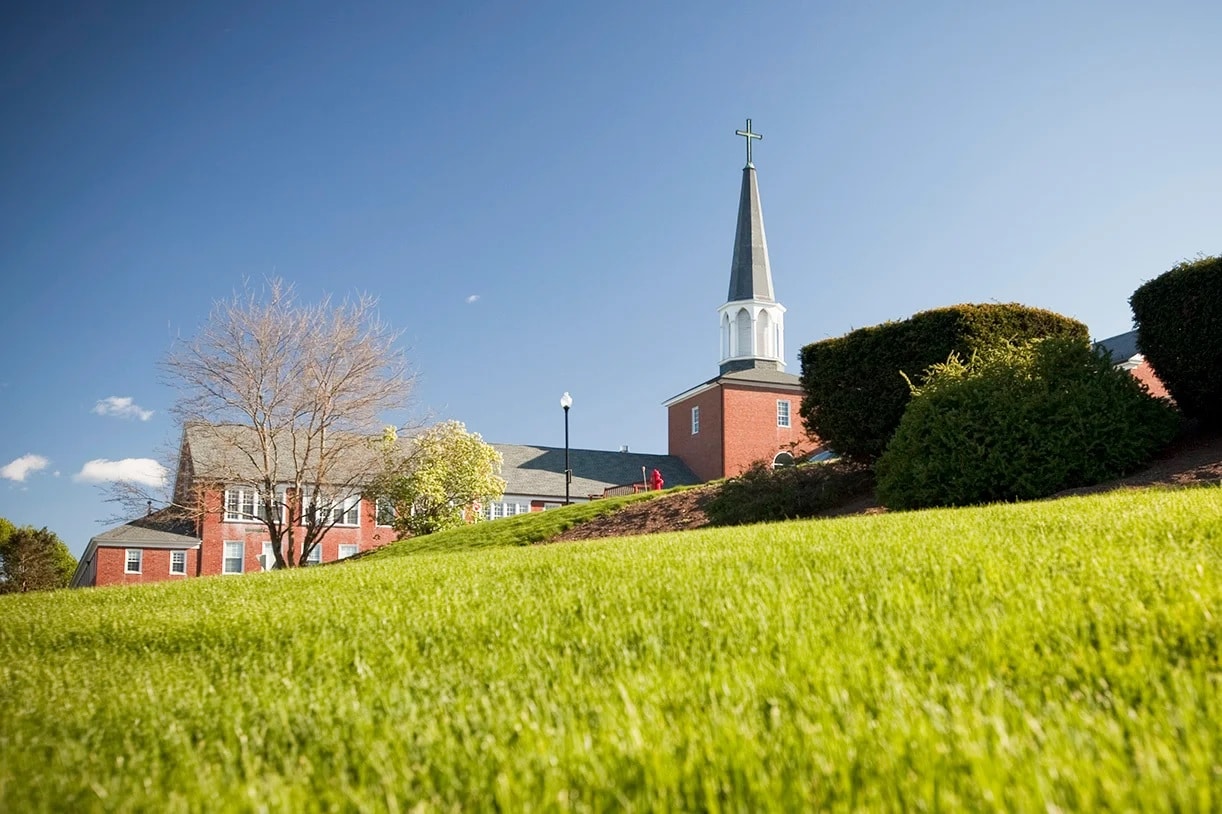
Like Gordon-Conwell, Claremont School of Theology, a United Methodist seminary, has been heavily investing in online learning. With some 70% of its students attending remotely, President Jeffrey Kuan said, the school plans to sell its current 16.4-acre campus and relocate to a site with only three classrooms.
The school has been trying to sell its campus for years but has been blocked by a 1957 agreement that could force the seminary to sell to The Claremont Colleges for less than market value. In January, a Los Angeles County Superior Court ruled that they would have to do so. Kuan said that they have appealed the decision, but even if the school is forced to sell at a low price, remote learning has secured a promising future for the school — and he thinks other seminaries ought to pivot toward an online presence as well.
“We have seen a significant reduction of cost as we began to move into this type of future,” said Kuan. “This is what a lot of theological institutions are needing to do. The operational cost in higher education has gone out of control.”
Remote options make the cost of attendance more manageable for students as well, many of whom now pay rent in pricey urban areas. It also opens enrollment up to international and second-career students who are unable to relocate.
Still, not everyone is enthusiastic about the shift. “[T]o give up on residential learning altogether is to give up on the good of particularity and hospitality, of difference and community,” wrote Kirsten Sanders, an adjunct professor at Gordon-Conwell, in a recent Christianity Today article. “These goods are expensive, yes, but they are far too valuable to lose.”
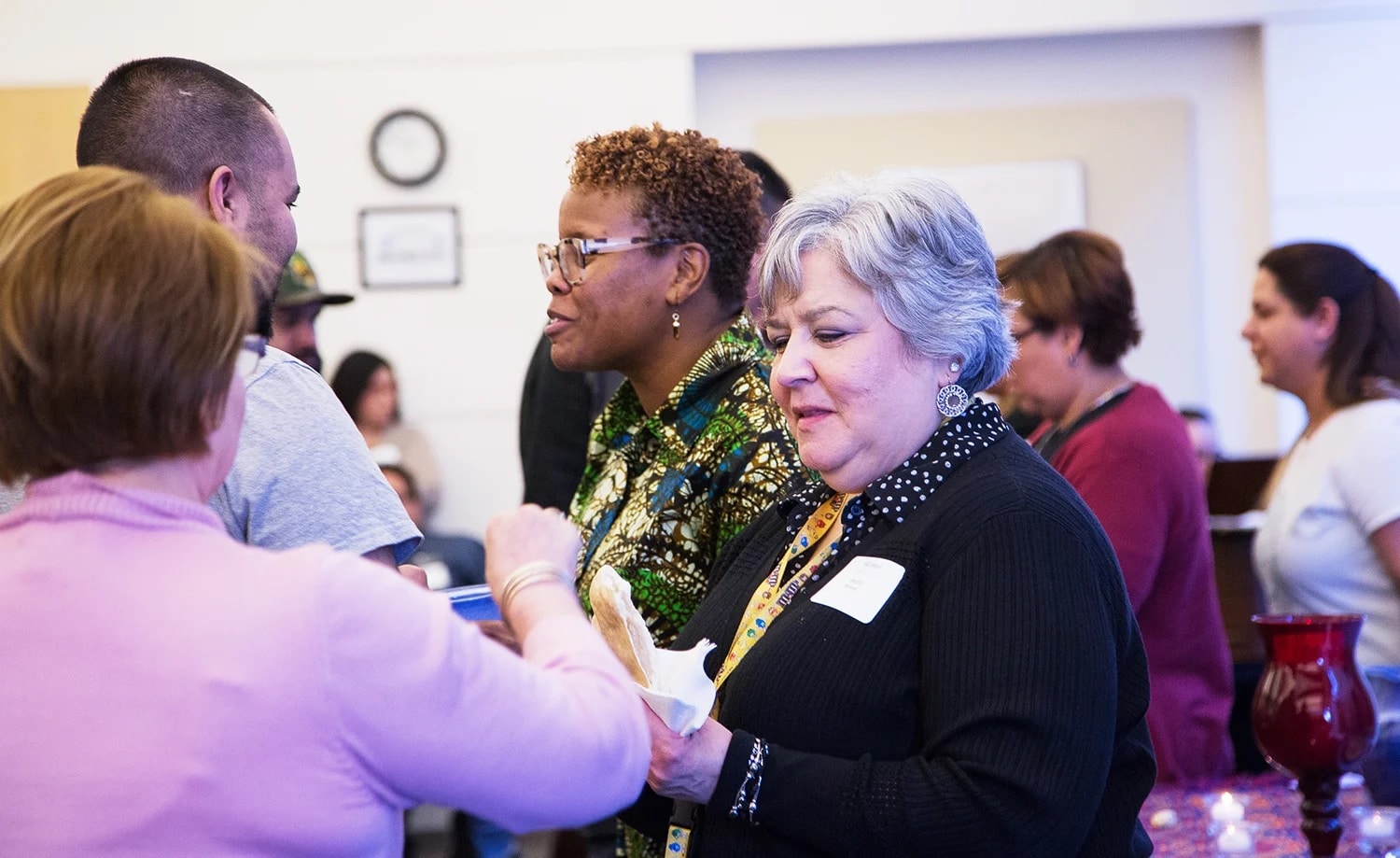
But to Sarah Drummond, dean of Andover Newton at Yale, downsizing gives flailing institutions hope. A few years ago, Andover Newton had to sell its 23-building, 17-acre campus due to declining enrollment and upkeep costs in a move that also forced the seminary to cut most of its teaching positions.
“Once we started realizing that we were balancing our budget on the students’ backs, and they were graduating and going into a meaningful but low-paying profession with more debt than they could handle, we knew that something really drastic was going to need to happen,” said Drummond.
Since affiliating with Yale Divinity School, it has continued to prepare students for ministry in congregational traditions like the United Church of Christ and American Baptist Churches while also offering community-building programs for all YDS students. This year, 21 students graduated with both Yale degrees and Andover Newton diplomas. Thanks in part to income from the sale of Andover Newton’s property, beginning next year Yale Divinity will provide full-tuition scholarships for all students with financial need.
Crawford, president at McCormick, hopes that despite the treacherous road ahead, seminaries will find opportunities to prioritize community investment over reliance on real estate.
“I think it’s really important, particularly for the smaller and mid-sized schools, to be bold in making decisions now while they’re in positions to do so, rather than when they’re forced to do so,” said Crawford. “Times will continue to demand that we be creative, imaginative and flexible in the work we do. And I think that’s not just at McCormick, but probably at every school.”
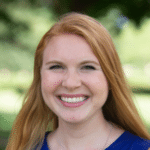 Kathryn Post is a writer living in Washington D.C. She is a graduate of Calvin College and an editorial assistant for Sojourners magazine.
Kathryn Post is a writer living in Washington D.C. She is a graduate of Calvin College and an editorial assistant for Sojourners magazine.





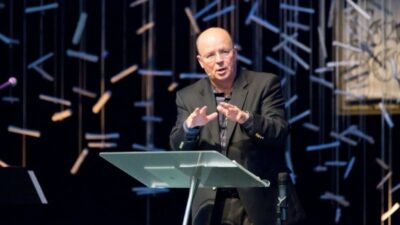
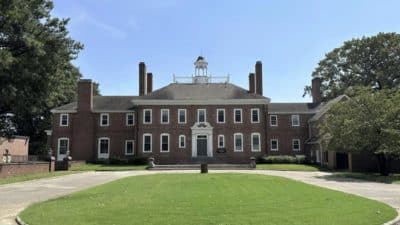
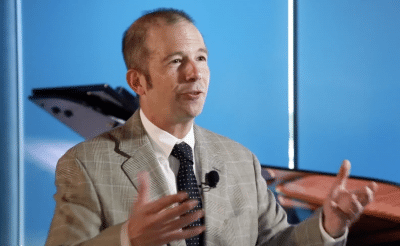


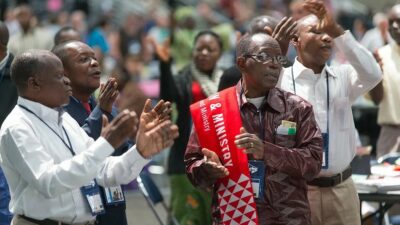
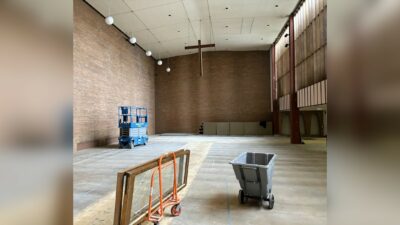
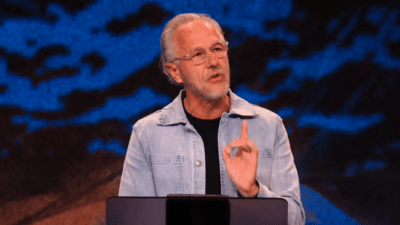







12 Responses
Can traditional Christian Colleges be far behind? The internet changed everything.
I understand the pressures, but on-line learning might enable accumulation of facts, but it is not education. The warm, close personal interactions with other students and faculty, the informal meetings and conversations are impossible on-line. And so the intellectual and social richness of people gathering is lost.
David Green nails it.It is not community in online learning. High tech…….low touch. That might sound safe to elements of our culture. We are already dealing with the fallout of a generation that was not raised their formative years by a connected parent. Instead, we ended up with children at very young toddler ages, dropped off at the curb in front of a day care “village.” What did they learn?!!! First and foremost, to be little savages, vying for attention and manipulating authority. Sound familiar to those now dealing with thirty and forty-something’s scrambling atop others at any cost? They learned it. And teaching a prospective pastor his or her sacred duty to authentically love their flock, is not transmitted in the kitchen online program. Let’s get real.
Sam
re your comment
What did they learn?!!! First and foremost, to be little savages, vying for attention and manipulating authority
Ahhh… just to keep it real, that is nothing new my friend….
Downsizing………….here’s a warning. As you downsize Grace and embrace Lordship Salvation, all of us here common folk and sinners will continue to vote with our feet. There are still truth tellers like Dr. Andrew Farley…….a welcome lighthouse on a foggy and stormy theological sea. This symbolic sea is filled with Grace plus 613 laws. In other words, you seminary leaders out there weren’t doing your job!!!! There is a strong correlation between teaching people that Christ’s blood is not enough, and people voting with their feet. The boredom and heresy that is Lordship Salvation, which is now tolerated by too many seminaries, is not Good News. Y’all need to be listening to the Andrew Farley folk of this world………Grace plus nothing. Matter of fact, that’s what the Bible teaches. And of course, Free Grace does not connect well with the works crowd, who make up the majority of young working professionals. John MacArthur and the “Grace plus 613”crowd, sells well with “Type A”personalities who have disposable income, and striving tickles their ears. So there you have it, my anecdotal take on why seminaries are struggling. The sad part is that 90 percent of a Seminary education is about the fellowship. I personally don’t want a pastor who went to seminary in his or her pajamas with online learning, about how to live my life.
They can frame it as a pivot, but I’m not sure they are telling all of the reasons they are downsizing.
I can appreciate both the in-person learning, as well as the downsizing in favor of online learning. I did my undergrad in person at Liberty University from 05-11. I’ve been in full-time vocational ministry since then. I don’t want to leave my church in order to pursue seminary. So online options are wonderful. I’m pursuing a MATS from Trinity Evangelical Divinity School online. The teaching is wonderful and the community is as good as I think you could expect from an online format. The only downside is that it’s still fairly expensive for pastor’s wages… roughly $700 per credit hour (this particular program is 42 credit hours). I love the ethos and teaching paradigm at TEDS, and specifically chose it because I serve as a pastor in the EFCA and wanted to diversify my education having done my undergrad at LU. But the cost has me considering transferring somewhere that won’t place so much strain on my family’s budget. I think I read something recently about Trinity downsizing. I hope that doesn’t mean people will lose their jobs, but it would be great if the tuition rates dropped a little. It is fine for us all to have our opinions on in-person vs. online learning. Just remember that the people at these seminaries are real people faced with real problems around stewardship, debt, the livelihoods of their staff and staff families, boards of directors, constitutions and by-laws, and Christian ethics in our post-Christian world. Try to imagine yourself in their position. Pray for them and support where you can.
Hi Mat……….good post. I respect your thoughts. You attended Liberty University as an undergrad……..a great dynamic environment. You have a solid base of social interactions with which to draw from. Perhaps…….and I say this cautiously………such rich experiences are a reservoir of strength to propel us through online grad school or seminary. My concern is with those who have little to no fellowship background. They receive their credentials online, then get a pulpit where they are sparsely equipped to shepherd or love people. Too many churches are now lead by “businessmen.” Keep the Faith.
Paul was a businessman. He made tents.
How come (almost) all the comments are from males?
Not to be too cynical, but since the Shepherd/Flock nomenclature with interaction between the two has been jettisoned, why should the Rabbi/Disciple with interaction be maintained? I understand the financial aspects, but I am sure much will be lost as in-person campus learning moves into the museum and into the history books..
My former missionary training school downsized their sizable land holding but kept the main small campus. Sometimes it makes more financial sense to downsize land and reinvest in a schools core commitment. This might entail a hybrid system. It is interesting to note the high cost of seminary training. I would like to know what the average debt a newly minted seminarian is burdened with. Times change and we must be nimble.